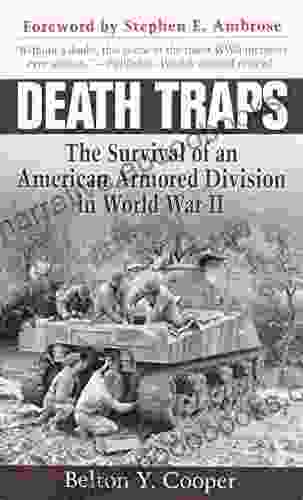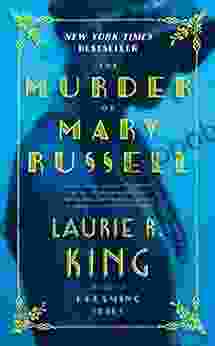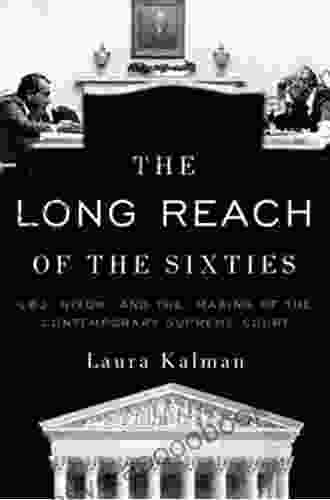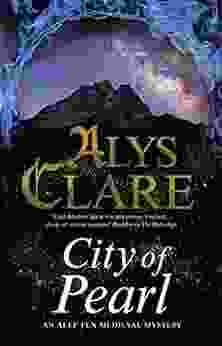LBJ, Nixon, and the Making of the Contemporary Supreme Court

The Supreme Court of the United States is the highest court in the land, responsible for interpreting the Constitution and overseeing the federal judiciary. Its decisions have a profound impact on American society, shaping everything from civil rights to economic policy. In the tumultuous decades of the 1960s and 1970s, two presidents—Lyndon B. Johnson and Richard M. Nixon—left an enduring mark on the Court, appointing justices who would shape its direction for years to come.
LBJ and the Warren Court Legacy
When Lyndon B. Johnson became president in 1963 following the assassination of John F. Kennedy, he inherited a Supreme Court that was already in the midst of a period of dramatic change. Under the leadership of Chief Justice Earl Warren, the Court had issued a series of landmark decisions that expanded civil rights, protected individual liberties, and curtailed the power of state governments.
5 out of 5
| Language | : | English |
| File size | : | 23307 KB |
| Text-to-Speech | : | Enabled |
| Screen Reader | : | Supported |
| Enhanced typesetting | : | Enabled |
| Word Wise | : | Enabled |
| Print length | : | 486 pages |
| Lending | : | Enabled |
Johnson was a strong supporter of the Warren Court's liberal agenda, and he appointed two justices who would continue its legacy. In 1965, he nominated Abe Fortas to the Court. Fortas had been a close advisor to Johnson and shared his progressive views on social justice. In 1967, Johnson appointed Thurgood Marshall, the first African American to serve on the Supreme Court. Marshall had a long history of fighting for civil rights, and his appointment was a major victory for the civil rights movement.
Under Johnson's leadership, the Court continued to issue landmark decisions that expanded individual rights. In 1966, the Court ruled in Miranda v. Arizona that criminal suspects must be informed of their rights before being questioned by police. In 1967, the Court ruled in Loving v. Virginia that laws prohibiting interracial marriage were unconstitutional. These decisions helped to shape the modern understanding of individual rights and freedoms.
Nixon and the Conservative Resurgence
When Richard M. Nixon became president in 1969, he was determined to appoint justices who would overturn the liberal legacy of the Warren Court. Nixon believed that the Court had gone too far in expanding individual rights and limiting the power of government.
Nixon's first Supreme Court appointment was Warren Burger as Chief Justice in 1969. Burger was a conservative judge who had served on the Warren Court but had become increasingly critical of its liberal decisions. Nixon's second appointment was Harry Blackmun in 1970. Blackmun was a more moderate conservative, but he would often side with the Court's more conservative members.
Under Nixon's leadership, the Court began to move in a more conservative direction. In 1973, the Court ruled in Roe v. Wade that women have a constitutional right to an abortion. However, the Court also began to uphold restrictions on abortion, and in 1976, it ruled in Buckley v. Valeo that corporations have a First Amendment right to spend money on political campaigns. These decisions helped to lay the groundwork for the conservative Court that would emerge in the decades that followed.
The Lasting Legacy of LBJ and Nixon
Lyndon B. Johnson and Richard M. Nixon both left a lasting legacy on the Supreme Court. Johnson's appointments helped to cement the Warren Court's liberal legacy, expanding individual rights and protecting civil liberties. Nixon's appointments began a conservative resurgence on the Court that would continue for decades to come.
The Supreme Court that we have today is the product of the decisions made by Johnson and Nixon during their presidencies. Their appointments shaped the Court's direction and continue to influence its decisions to this day.
The Supreme Court is a crucial institution in American democracy, and its decisions have a profound impact on the lives of all Americans. The appointments made by Lyndon B. Johnson and Richard M. Nixon during the turbulent 1960s and 1970s helped to shape the Court into the institution that it is today. Their legacy will continue to be felt for years to come.
5 out of 5
| Language | : | English |
| File size | : | 23307 KB |
| Text-to-Speech | : | Enabled |
| Screen Reader | : | Supported |
| Enhanced typesetting | : | Enabled |
| Word Wise | : | Enabled |
| Print length | : | 486 pages |
| Lending | : | Enabled |
Do you want to contribute by writing guest posts on this blog?
Please contact us and send us a resume of previous articles that you have written.
 Book
Book Novel
Novel Page
Page Chapter
Chapter Text
Text Story
Story Genre
Genre Reader
Reader Library
Library Paperback
Paperback E-book
E-book Magazine
Magazine Newspaper
Newspaper Paragraph
Paragraph Sentence
Sentence Bookmark
Bookmark Shelf
Shelf Glossary
Glossary Bibliography
Bibliography Foreword
Foreword Preface
Preface Synopsis
Synopsis Annotation
Annotation Footnote
Footnote Manuscript
Manuscript Scroll
Scroll Codex
Codex Tome
Tome Bestseller
Bestseller Classics
Classics Library card
Library card Narrative
Narrative Biography
Biography Autobiography
Autobiography Memoir
Memoir Reference
Reference Encyclopedia
Encyclopedia David Weir
David Weir Allison Choying Zangmo
Allison Choying Zangmo Reese Ryan
Reese Ryan Virginia Buckingham
Virginia Buckingham Matthew Soerens
Matthew Soerens Rachael English
Rachael English Nigel Thorley
Nigel Thorley Susan Shepler
Susan Shepler Kyung Suk Oh
Kyung Suk Oh Suzanna Lynn
Suzanna Lynn Jennifer Wood
Jennifer Wood Kelsey Kingsley
Kelsey Kingsley Shawna Ross
Shawna Ross Stef Van Buuren
Stef Van Buuren Jerry W Gilley
Jerry W Gilley Peter Altenberg
Peter Altenberg Dale Crane
Dale Crane Alina Daria
Alina Daria Linda Rossetti
Linda Rossetti Frankie Love
Frankie Love
Light bulbAdvertise smarter! Our strategic ad space ensures maximum exposure. Reserve your spot today!

 Salman RushdieThe Enchanting World of Melville's Novel: A Literary Masterpiece Reimagined
Salman RushdieThe Enchanting World of Melville's Novel: A Literary Masterpiece Reimagined
 Roland HayesThe Survival of an American Armored Division in World War II: A Riveting Tale...
Roland HayesThe Survival of an American Armored Division in World War II: A Riveting Tale...
 Travis FosterHarness the Power of Data: Unlocking Academic Success with Higher Education...
Travis FosterHarness the Power of Data: Unlocking Academic Success with Higher Education... Isaac BellFollow ·18.2k
Isaac BellFollow ·18.2k Andrew BellFollow ·12.2k
Andrew BellFollow ·12.2k Dion ReedFollow ·13.4k
Dion ReedFollow ·13.4k Austin FordFollow ·17.5k
Austin FordFollow ·17.5k Hugh ReedFollow ·14.5k
Hugh ReedFollow ·14.5k Theo CoxFollow ·17k
Theo CoxFollow ·17k Chandler WardFollow ·18.4k
Chandler WardFollow ·18.4k Stuart BlairFollow ·15.6k
Stuart BlairFollow ·15.6k

 F. Scott Fitzgerald
F. Scott FitzgeraldUnravel the Enigmatic Murder of Mary Russell: A...
Prologue: A Grisly Discovery In the...

 Connor Mitchell
Connor MitchellLittle Quilts: Gifts from Jelly Roll Scraps
Embrace the Art...

 Harold Powell
Harold PowellPoverty Survival Hope In An American City: A Pulitzer...
A testament to the resilience of the human...

 Ray Blair
Ray BlairConfronting Global Warming: Population, Resources, and...
Global warming is one of the most pressing...

 Gary Cox
Gary CoxStyle Your Most Authentic Self and Cultivate a Mindful...
Unlock Your True...

 Caleb Long
Caleb LongEmbark on a Colorful Patchwork Adventure: Discover 20 To...
Step into the captivating world of...
5 out of 5
| Language | : | English |
| File size | : | 23307 KB |
| Text-to-Speech | : | Enabled |
| Screen Reader | : | Supported |
| Enhanced typesetting | : | Enabled |
| Word Wise | : | Enabled |
| Print length | : | 486 pages |
| Lending | : | Enabled |






